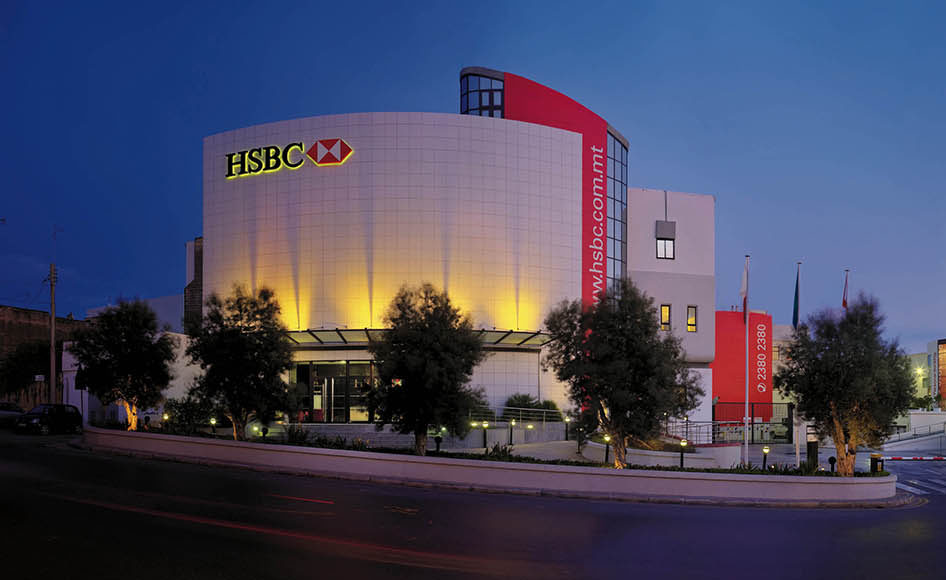The interim reporting season is now in full swing with the publication of results by Mapfre Middlesea plc, APS Bank plc and Bank of Valletta (BOV) last week followed by HSBC Bank Malta plc and also of Malta International Airport plc earlier this week.
In view of the sudden change in the interest rate environment over recent months which is a clear tailwind for the banking sector as evidenced in the key financials disclosed by the banks for the first quarter, the announcements by the three banks were bound to be among the principal focal points for the investing public during this interim reporting season.
Given BOV’s dominant market share and the high levels of liquidity in their financial statements, the positive interest rate environment had a major positive impact on the bank. In fact, BOV reported a pre-tax profit of €105 million during the first half of the year. While the results last year are not a useful comparison due to the large settlement of the Italian litigation, the extent of the level of profits generated over the past six months should be analysed in the context of the performance in the second half of 2022 and also in prior years also excluding any major one-off impairments or extraordinary items that had a material impact on its performance. As such, the €105 million in pre-tax profits in H1 2023 compares very favourably to the level of €62 million in H2 2022 excluding the sizeable impairment reversals and the €68 million during the first half of 2017.
The main driver of the strong performance in H1 2023 is the interest rate environment with net interest income contributing 80 per cent of total operating income. BOV also strengthened their margins despite the interest expense related to the MREL-issue at 10 per cent per annum. While this performance may have been widely predicted by a number of financial analysts and market participants with a good knowledge of the structure of BOV’s balance sheet and performance drivers of the bank, the main focal point was whether the bank is in a position to commence the distribution of a regular dividend to shareholders.
It is disappointing that in the company announcement, no mention was made of the rationale for not declaring a dividend and the process currently being undertaken by the bank in this respect. As expected, this was one of the main topics discussed during an analyst meeting held a few hours after the publication of the financial statements. Chairman Gordon Cordina argued that an interim dividend is not ruled out otherwise this would have been stated in the announcement. Mr Cordina directed analysts to the press release published shortly after the company announcement in which it was stated that further discussions are necessary for the bank to consider the payment of a dividend from profits realised in H1 2023. Given the tier one capital ratio of 23 per cent (well-above many eurozone banks including all other banks in Malta) and the strong probability of a continued high level of profitability in the next six months and also in 2024 in the light of the interest rate policy of the European Central Bank, it is clear that a cash dividend could be declared very shortly.
Although I mentioned last week that a cash dividend is among the most important considerations for BOV shareholders, one could also argue that given the present interest rate environment and the good returns being generated by the bank (an annualised return on equity above 11 per cent), shareholders need not be solely focused on an actual cash dividend since in the meantime the retained earnings are boosting the net asset value of the bank (which has since risen to above €2.00 per share). In essence, possibly very few shareholders will be in a position to generate such positive returns of above 11 per cent in their personal capacity from any cash distributions made by BOV.
APS also had a record performance in the first half of the year with group pre-tax profits amounting to €16.8 million. In view of the lower levels of liquidity represented by the high loan-to-deposit ratio of 87 per cent as APS successfully increased its market share remarkably over the years, the bank was required to offer attractive rates to increase its deposit base over recent months. This is being reflected in the higher cost of funding with the interest expense totalling €12.5 million in the first half of the year compared to €7.9 million in the prior six months and €6.9 million in the first half of 2022. APS maintained its semi-annual scrip dividend policy and declared a dividend of €2.1 million last week. Should the large majority of shareholders continue to opt for new shares as opposed to cash, this would imply that only a fractional amount of profits will be distributed. This is important in the context of the bank’s growth trajectory and continued need for additional capital. In fact, last week, APS confirmed that it is finalising the documentation with respect to an issuance of debt securities and upon regulatory approval it aims to proceed with a public offer of fixed-income instruments by the end of this year.
HSBC Bank Malta plc also reported a record financial performance for the first half of the year with pre-tax profits surging to €59.3 million. This was also primarily driven by the elevated interest rate environment resulting in an annualised return on equity rising to 16 per cent. It is worth highlighting that the interest expense incurred by HSBC Malta in the first half of 2023 was only €7.8 million which is far below that of APS at €12.5 million notwithstanding the fact that HSBC has more than double the amount of deposits than APS. HSBC declared a cash dividend of €0.06 per share gross of tax (€0.039 per share net of tax) which equates to a dividend payout ratio of 36 per cent of the first half profits. In the company announcement, of particular relevance is the statement by HSBC Malta’s CEO that the bank “is positive on Malta and we have identified many opportunities to grow our business here”.
The rising interest rate environment across the eurozone translated into elevated profits for the banking sector which is reassuring for the Maltese investing public given the wide share ownership across the various banks. There are clear indications that the European Central Bank intends to proceed with a further rate hike by the end of the year taking the deposit facility to four per cent. This should continue to boost profitability levels across the banks in the months ahead which is positive given the prolonged period of subdued returns by the banks over recent years as a result of the negative interest rate environment.
Read more of Mr Rizzo’s insights at Rizzo Farrugia (Stockbrokers)
The article contains public information only and is published solely for informational purposes. It should not be construed as a solicitation or an offer to buy or sell any securities or related financial instruments. No representation or warranty, either expressed or implied, is provided in relation to the accuracy, completeness or reliability of the information contained herein, nor is it intended to be a complete statement or summary of the securities, markets or developments referred to in this article. Rizzo, Farrugia & Co. (Stockbrokers) Ltd (“Rizzo Farrugia”) is under no obligation to update or keep current the information contained herein. Since the buying and selling of securities by any person is dependent on that person’s financial situation and an assessment of the suitability and appropriateness of the proposed transaction, no person should act upon any recommendation in this article without first obtaining investment advice. Rizzo Farrugia, its directors, the author of this article, other employees or clients may have or have had interests in the securities referred to herein and may at any time make purchases and/or sales in them as principal or agent. Furthermore, Rizzo Farrugia may have or have had a relationship with or may provide or has provided other services of a corporate nature to companies herein mentioned. Stock markets are volatile and subject to fluctuations which cannot be reasonably foreseen. Past performance is not necessarily indicative of future results. Foreign currency rates of exchange may adversely affect the value, price or income of any security mentioned in this article. Neither Rizzo Farrugia, nor any of its directors or employees accepts any liability for any loss or damage arising out of the use of all or any part of this article.
Pioneering the 5th freedom: Enhancing research, innovation, and education in the single market and Malta’s role
Malta stands to gain significantly from the establishment of the 5th Freedom
Beyond numbers: Understanding the significance of pricing multiples for informed investing
Market participants may calculate financial metrics to take investment decisions following the end of the reporting season
Reinventing the single market: Strategic vision and bold reforms for Malta and Europe
Proposed reforms present significant opportunities and formidable challenges for our small island nation







